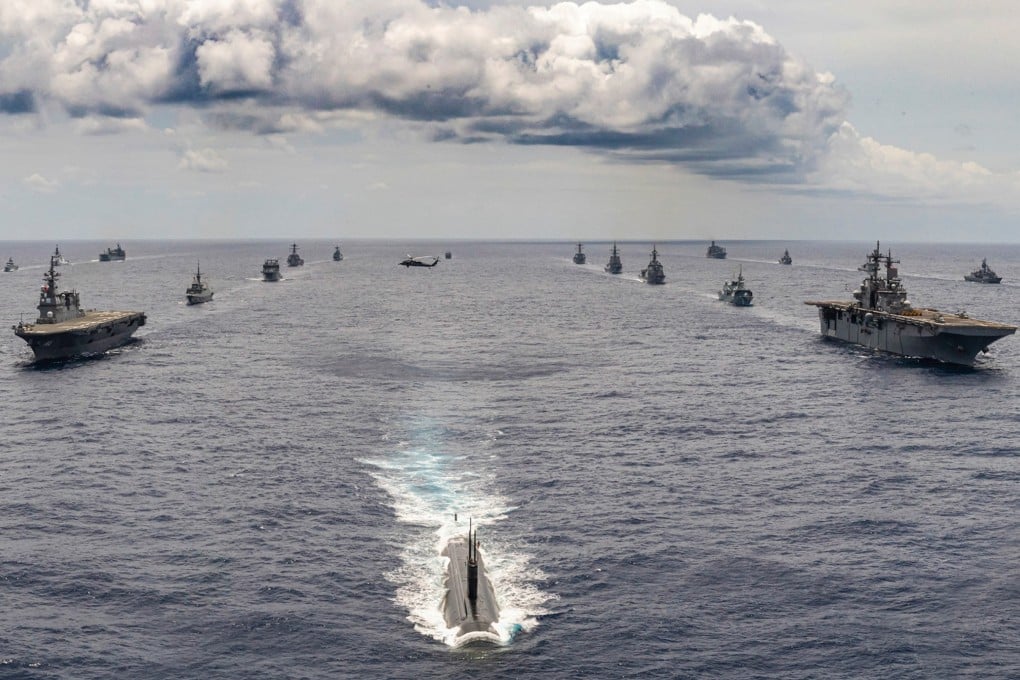US to be joined by other Quad members, South China Sea nations for Rimpac war games
- World’s biggest naval exercises will take place from June 29 to August 4 in and around the Hawaiian islands and southern California
- It will involve 26 countries, including India, Japan and Australia as well as Singapore, Thailand, Indonesia, Brunei and the Philippines

The US military will be joined by units from 25 countries – including the other Quad members and five Southeast Asian nations – for the world’s biggest naval war games at the end of this month.
Thirty-eight surface ships, four submarines and more than 170 aircraft will take part in the biennial Rim of the Pacific (Rimpac) exercises from June 29 to August 4, the US Navy said in a statement on Tuesday.
It will also involve land forces from nine countries, and a total of 25,000 personnel will take part. The drills – first held in 1971 – will take place in and around the Hawaiian islands and southern California.
Hosted by the commander of the US Pacific Fleet, the exercises will involve American allies and partners from around the world. They include India, Japan and Australia – the other members of the US-led Quad security group that China has called an “Asian Nato” aimed at containing its influence in the region.
Those taking part in Rimpac will “exercise a wide range of capabilities and demonstrate the inherent flexibility of maritime forces”, ranging from disaster relief and maritime security operations to complex warfighting, the US Navy statement said.